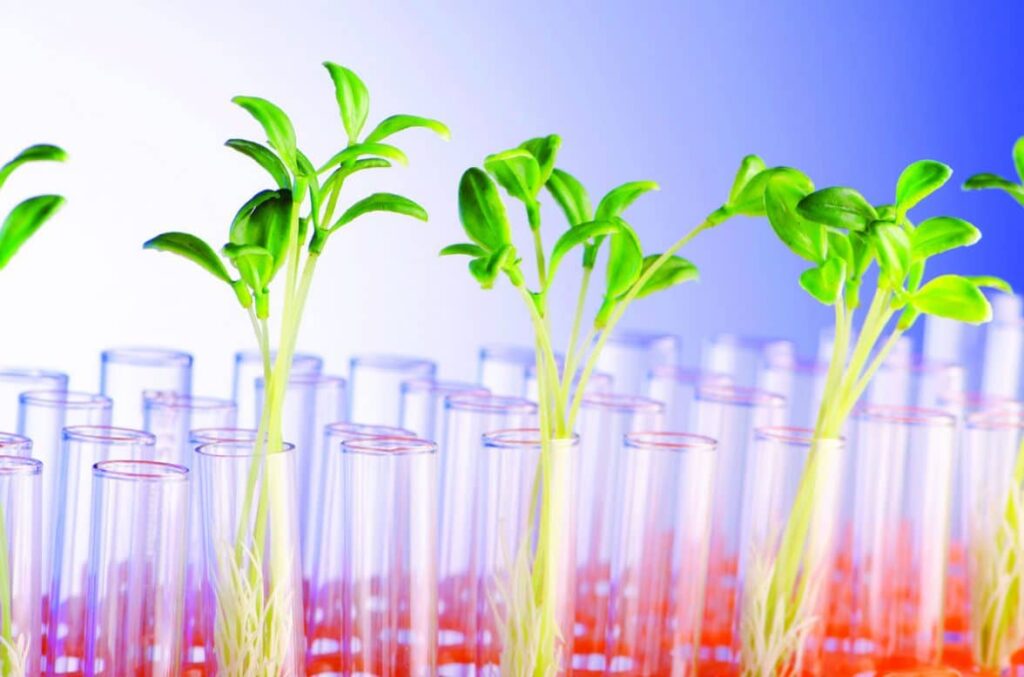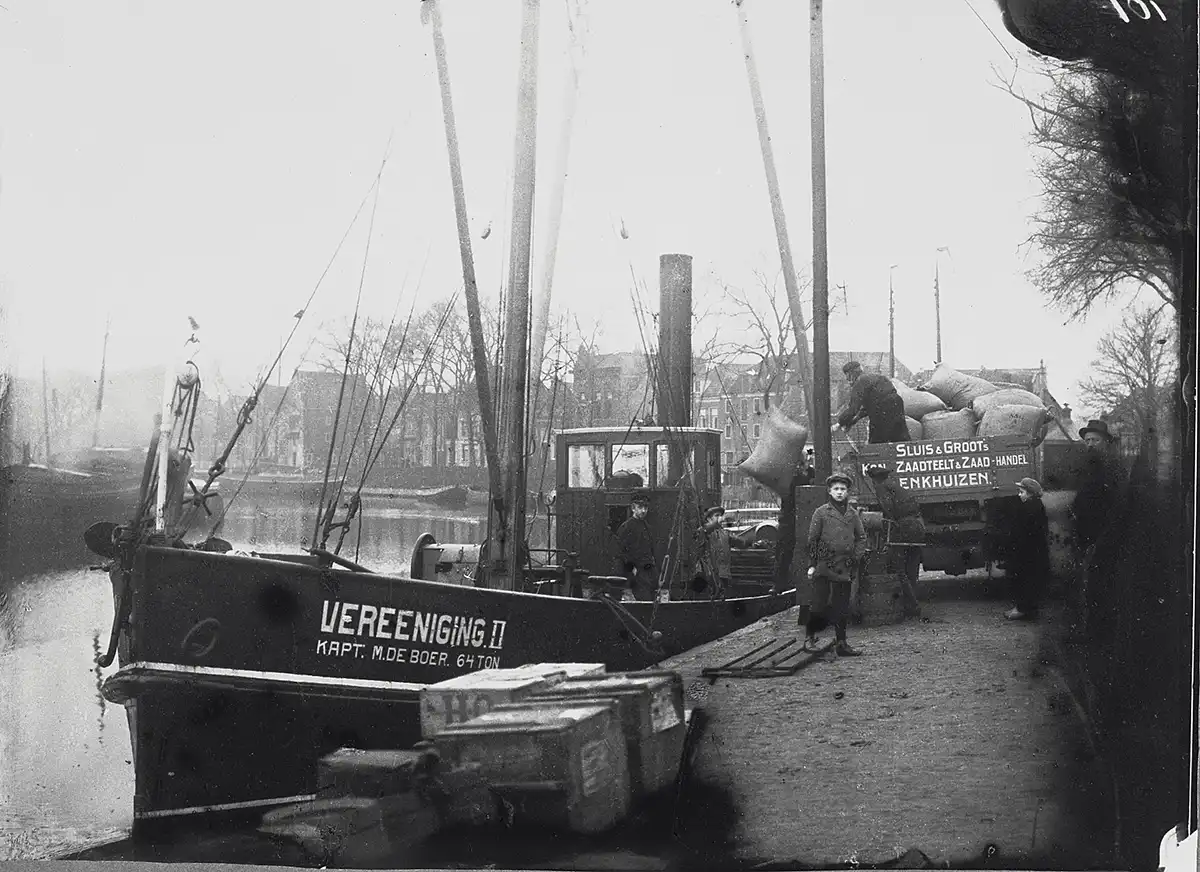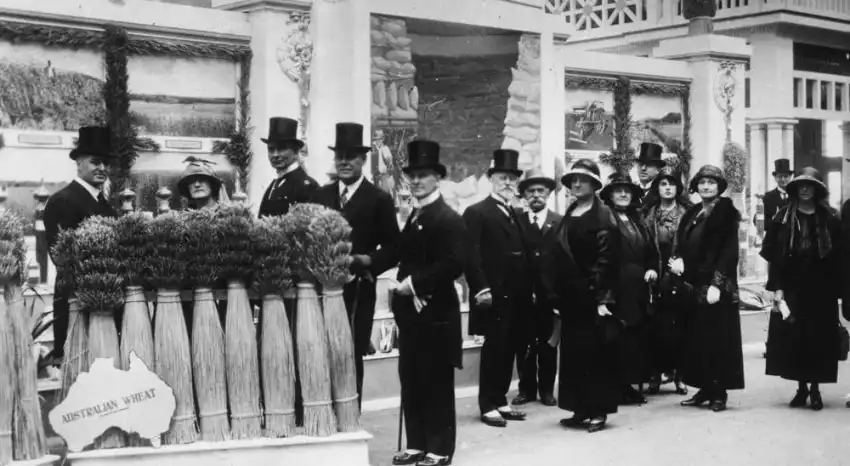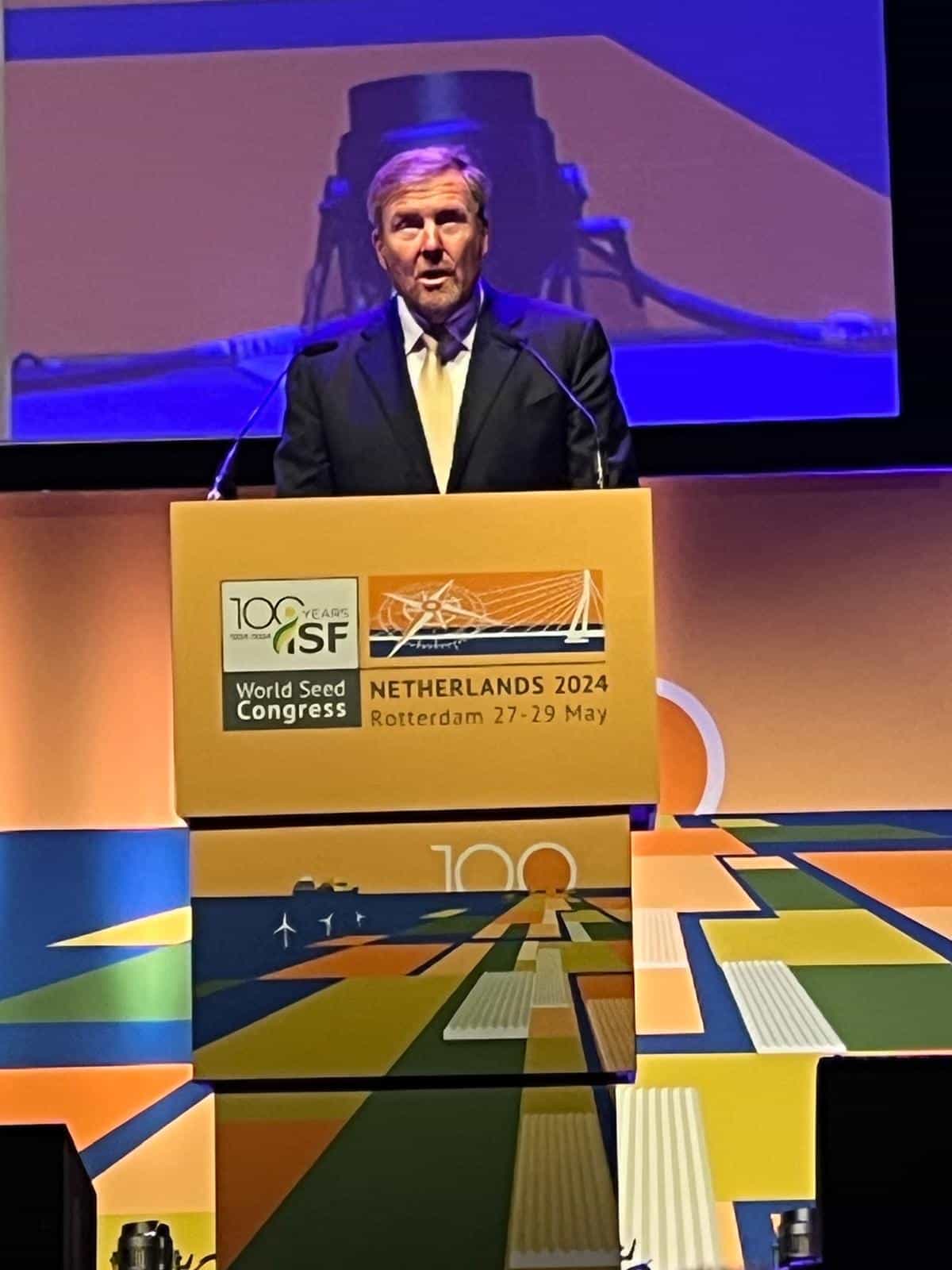Plantum, the Dutch association for plant reproduction material, represents a highly innovative and fast growing sector agriculture agricultural industry. Its approximately 350 member companies are active in breeding research and plant breeding, propagation and production, as well as the trade of seeds, bulbs, tubers, cuttings and young plants.

“Together, our members represent about 10 000 jobs, with 35 per cent of them at a high qualification level,” says Plantum general director Niels Louwaars. “We are one of the larger national organisations in the plant reproduction material sector. Our staff consists of 12 experts, assisted by some administrative collaborators. That’s comparable to the U.S., German and French sector organizations.”
Plantum represents and promotes the interests of its members and, on behalf of the sector, acts as a discussion partner with government bodies and interest groups. “Our focus is on consolidating and further improving the competitive position of the sector and of the groups of affiliated members on a national and international level,” says Louwaars.
Research Career Opportunities
One of the challenges facing companies in the expanding Dutch seed sector is they cannot easily find excellent young staff members. To combat this, Plantum is making a concerted effort to help increase the intake of new university students in plant sciences.
“We help excellent bachelor level students to choose plant sciences by providing the prospect of a PhD grant, co-funded by the industry. In the near future, we will see the results of these actions,” says Louwaars. “In the meantime, our companies are actively recruiting worldwide. Luckily, students from all over the world come to Amsterdam or Wageningen University in the Netherlands to study plant sciences. However, even this input is not enough to fill in all of the available job positions.”
Among high school students, the seed sector is insufficiently known. Too often the industry faces problems, with a less positive image of the agricultural and horticultural sectors as a whole. “This image reflects on us. We try to counter it, by emphasising that we are one of the nine officially acknowledged top sectors in the Netherlands and that we are excitingly innovative and international,” says Louwaars.
Plantum proactively defends the interests of the sector in front of the political decision makers. “We are known as an organisation with a very profound knowledge about all our matters of interest and less as political lobbyists. We have a lot of formal and informal contacts with Dutch government members who familiar with our goals,” says Louwaars. “For them, we are a source of valuable information. Ideally, decisions are influenced on the ministry level; we only actively approach parliament members when we feel that government actions are going the wrong way.”

Europe and the World
On the European Union political level, Plantum closely collaborates with the European Seed Association. ESA lobbies the European Commission and the European Parliament on all matters related to the seed sector. However, Louwaars underlines that in this respect, the Plantum spectrum is somewhat broader than scope of either the ESA or International Seed Federation.
“We don’t only cover seed companies, but also enterprises working with bulbs, tubers, cuttings and young plants. Vegetable seeds, seed potatoes and ornamentals have a significant weight in the Dutch sector. In most countries, the economic weight of the ornamental breeders branch is too small to have a full-time national representative organisation,” states Louwaars. “This broad range makes us strong, and strengthens our voice towards government. It was also the main reason why several long-established sector organisations merged to become Plantum in 2001.”
The Plantum staff, seated in the historical cheese city of Gouda, offers support to dozens of thematic commissions and working groups. There are permanent commissions on biodiversity, breeding methods, innovation policy, intellectual property rights, employment rules, organic seeds, export/trade barriers, crop protection, and environment and public image. In the commission and working group meetings, member delegates often deal with both hot button and delicate issues. In the dedicated working groups a key function is the knowledge exchange with colleagues and the planning of joint actions.
Biodiversity
A key issue for Plantum is biodiversity policy. “Plantum has been active in this dossier at international levels for at least 12 years,” says Anke van den Hurk, deputy director and biodiversity specialist with Plantum. “Currently, we have to deal in particular with the implementation of the Nagoya Protocol in the national legislations. Access to genetic sources is important to ensure future breeders’ contributions to sustainability in horticulture and agriculture, a major societal objective.
“Due to the European biodiversity regulations based on the Nagoya Protocol, such access may become very complex. It will not only become very expensive, but also bring a large administrative workload,” van den Hurk cautions. “The risk of limiting the use of genetic resources is decreased innovation and a decline in genetic diversity.”
In 2013, Plantum helped to develop new European legislation on access to genetic resources and assisted in creating legal certainty by introducing the law on access to materials received after the Nagoya Protocol went into force. “Recognition of sector specific systems had been included in the protocol following intensive lobbying on global level, but important challenges are still faced on the level of implementing in national rules,” van den Hurk says.
The recent inclusion of a limited breeders’ exemption in the Dutch Patents Act is considered to be an important first step in enabling the plant breeders’ access to materials for breeding. This is the ‘intermediate’ result of an intensive debate going on in various countries in Europe and abroad.
Protecting Prosperity
Crop protection is also a very important dossier. The withdrawal of chemicals is a serious problem, especially when high-quality seed needs to be produced for farmers. Gea Bouwman, crop protection specialist at Plantum, argues that if crop protection is used in the seed production stage or as seed treatment, the large-scale use of chemicals can often be reduced significantly. “It is important that national interpretation of European crop protection rules do not damage the level playing field that Europe wants [and needs to] achieve. It happens too often that chemicals that are allowed in other EU countries, are withdrawn by the Dutch authorities,” warns Bouwman.
Plantum knows facilitating export and international trade is a key issue for its members. “Every country has its own phytosanitary requirements. These can operate as trade barriers. Often, the barriers can be resolved through contacts between the national plant protection officers, but damage to trade cannot always be avoided.
Plantum acts as an intermediary between companies and phytosanitary officials,” says Marian de Beuze, who is responsible for Plantum’s export promotion and trade barriers committee. “Contrary to the discussions about biodiversity, these are subjects where decisions and actions can’t endure long delays,” she says.
“Intellectual property is also vital to our sector, both in the home markets and internationally. It is essential to continue to invest in innovation, which our sector does at a rate that is unheard of. We estimate an average investment in R&D at the level of 15 per cent of turnover. In vegetable breeding it may be over 25 per cent in individual companies,” says de Beuze.
These investments needs to be protected. Plantum is an official observer in the Community Plant Variety Office and regularly supports ISF in UPOV meetings on all issues related to plant breeders’ rights. “Together with the Dutch government, we are negotiating with China to improve the implementation of breeders’ rights,” de Beuze says. “The balance between patents and breeders’ rights — and on a global level, between breeders’ rights and farmers’ rights — are very important as well. However, opinions differ within the sector.”
The Dutch plant reproductive material sector has gained a leading status internationally through its continuous innovation efforts. Beuze explains: “In 2013, the government decided to allocate a new budget of € 2.6 million for the multi-annual co-financing of 11 research projects for horticulture and plant reproduction materials. In total, the co-financing of 39 research projects has been granted under the ‘top sector’ system.”
“We need a robust program with a clear long-term vision on funding and basic rules and regulations.”
Public-Private Partnerships
Despite the staggering investment levels in R&D, companies put a high value on the existence of a strong public research and education infrastructure. “Although companies operate at a global scale and can ‘shop’ for the best knowledge globally, they consider an accessible and excellent knowledge base in the Netherlands an important reason to continue to invest in this country,” states Thijs Simons, responsible for the innovation agenda at Plantum. “Despite the seed sector being a top sector in the policy of the Dutch government, the knowledge infrastructure is suffering under serious pressure.”
“The focus on public-private partnerships has started to damage support for fundamental, curiosity-driven research,” says Simons. “Plantum sees investment in fundamental research primarily as a government task. We furthermore try to streamline the thicket of rules for public-private research consortia. This is an important task of the foundation for public private partnerships (PPP) in research on plant reproductive materials, called TKI U, that Plantum chairs.”
This creates a base for the knowledge chain and provides opportunities to educate new research workers. In order to participate in PPP, companies need a robust program with transparent and uniform basic requirements and a long-term commitment to convert knowledge from fundamental research into market innovations.
“Today, there are too many different schemes. They are too small-scaled for each topic and each has its own basic requirements. We need a robust program with a clear long-term vision on funding and basic rules and regulations. Companies must be able to use of a single scheme rather than having to explore new instruments over and over again,” says Simons.
New Breeding Methods
“The Netherlands is a small country. We don’t have the necessary area for large-scale agriculture, such as corn or wheat. Instead, we need to get the highest returns out of every square metre,” says Louwaars. “This is the basis for our world leadership in horticulture, including seeds, seed potato and grass seeds.”
In order to continue to serve the world with new varieties that increase yield, support sustainable production systems, and that offer product quality and diversity, breeding and seed technology have to be supported,” explains Simons.
Important for the future of research and innovation in breeding is that access to new breeding methods is mired in overly complex regulations that are linked to the current approvals of GMOs. “The discussions about GMOs are ongoing in the Netherlands, but there exists a broad political support for cis genesis as its current use is mainly in breeding for resistances in crops that use a lot of crop protection chemicals,” says Louwaars.
“Unfortunately, some groups are not interested in debating, but stick to their old principles. Plantum is always prepared to debate such complex issues with politicians, ministries and civil society.”
To learn more visit the association’s website: www.plantum.nl.













